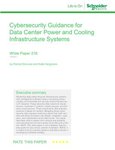Oracle's unrelenting focus on cloud-first innovations has finally reached an inflection point, leaving businesses with critical decisions to make. Support for Oracle database products is undergoing seismic changes: all releases prior to 19c are now on Oracle’s limited support offering, Sustaining Support. Customers are being urged to upgrade to 19c — but they should note that the clock is ticking on support for this release, too.
If your business is one of the many in banking, manufacturing, retail, and other industries that depend on Oracle databases for your mission-critical operations, you’re probably thinking: what’s next? Is Oracle leaving your business completely out to dry? What are your options going forward – can you even keep your on-prem environment? And, if you do, will the costs of keeping your systems up and running undermine any innovation efforts?
You have three options to choose from:
Option One: Full migration to Oracle Cloud
Oracle's primary strategy revolves around migrating customers to its latest software releases, essentially nudging them toward the cloud. This is the direction the business is moving in, and Oracle wants its software customers to follow suit. Of course, migrating your entire estate to the cloud is a costly, resource-intensive endeavor.
So why not just upgrade to a newer database version, and keep your on-prem systems? For customers relying on older database versions – say 11.2.x/12.1.x – Oracle recommends you upgrade to the Terminal release for the database version you’re currently running and then continue the upgrade process to 19c. So long as your enterprise is paying its annual maintenance fee, you’ll get access to all new versions of Oracle’s software.
But as any CIO knows, the challenge here is not the upgrade in and of itself – it’s the associated costs and risks of the upgrade. Upgrading in this way – whether it’s to a newer database version or a complete migration to the cloud – requires a huge time and resource investment at an organizational level. There’s also the added business risk of upgrading entire systems. If your current infrastructure is secure and stable, why risk introducing new threats or challenges that could end up costing your enterprise even more to manage and support? This is exactly what happened with a major Australian bank, where upgrading cost the organization a staggering AU$30 million (US$38m).
If you take the plunge and upgrade to 19c anyway, your system will only officially be supported for another three-and-a-half years. This is a lightning flash in IT time. But with the next long-term database release not even out yet, many legacy customers are left feeling that they really have no choice but to upgrade to 19c.
You’ll then find yourself in a familiar position: needing to upgrade – fast – to stay fully supported.
Oracle is pushing its customers towards a cloud-first future, with no clarity on when 23c will be available on-prem. If this feels like a lose-lose situation, it’s because it is.
Oracle's insistence on cloud migration leaves little room for alternative approaches. When software vendors decide to support only the latest versions of their products, they are in effect pushing their customers into potentially enormous, and often unwanted, IT transformation projects. Upgrading or migrating systems in this way is always expensive and disruptive – so it should be done on your terms only, when there’s an operational need, with the backing of business leaders, and a clear return on investment. Vendors prioritise their own innovation and technology agendas. You should do the same.
Option Two: Terminate Oracle contracts and embrace new technology
This is the nuclear option. With database support coming to a halt, businesses must seriously contemplate whether Oracle aligns with their future needs. Ensuring that your systems remain secure, compliant, and productive might necessarily mean completely overhauling your current infrastructures and looking at a new vendor entirely to meet your operational needs.
Option Three: keep your Oracle licenses, abandon your support contract, and partner with a third-party support provider
So, either you’re running a pre-19c release of Oracle Database with limited support, or you’re running 19c and know that, in a few short years, your system will be unsupported. You don’t want to migrate fully to the cloud – not yet anyway.
You do have an alternative. You can continue using your current Oracle Database, stay fully supported, and say goodbye to forced upgrades. How? By switching to specialist third-party support.
Partnering with a third-party software support provider can save you as much as 50 percent on support fees compared to Oracle Support. You can also enhance security, by working directly with specialists. Regardless of your version, third-party support customers get round-the-clock, responsive, critical database support and security protection against evolving threats.
So, is there a hidden silver lining to Oracle’s database support changes?
There can be, but it requires decisiveness. By ending your Oracle support contract, you get to retain your licenses, ensuring that your on-premise applications continue to run, supported by Oracle specialists, who promise an immediate improvement in the quality of service you receive.
And with the substantial cost savings you’ll make, you’ll have the freedom to explore alternative technologies – like Postgres – or experiment with hybrid environments. And if you decide that you want to stick with your stable on-premises applications, whatever release you’re running, that’s your prerogative.
Crucially, all these mission-critical decisions will be decided by you, and at a pace your business is comfortable with. Your third-party support partner will work with you to realize these plans – whether they’re transformation goals or efforts to improve efficiencies within current environments.
And while your critical systems and applications are kept running efficiently and securely, your business can spend its IT budget on innovation that drives business outcomes.
Which option will you go with?





